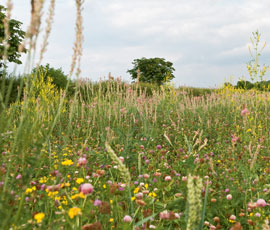RSPB warns DEFRA over ‘irresponsible’ red tape cuts

DEFRA has been urged not to be irresponsible in removing farming regulations as it moves to lift the burden of red tape from the industry.
The RSPB warned a “bonfire” of agricultural rules would do irreparable damage to the natural environment and be a backward step in farmers’ efforts to boost wildlife.
In an open letter to the independent taskforce on farming regulation – which is due to make recommendations to DEFRA on cutting agricultural red tape in the coming weeks – the RSPB said it was concerned its proposals could add pressure on the countryside.
Urging taskforce chairman Richard MacDonald not to weaken the conditions farmers must meet to receive direct payments, the letter said it was vital DEFRA did not reduce environmental standards in a bid to “please the industry”.
It said the panel should only consider voluntary schemes if they complimented regulation and rule enforcement should be carried out through inspectors rather than private assurance schemes.
Rolling back legislation which aimed to protect water quality by reducing nitrogen pollution caused by chemical fertilisers and manure was also concerning, the letter added.
Gareth Morgan, RSPB head of countryside conservation, said the taskforce was weighted in favour of agriculture, with little representation for the environment.
“We are very concerned about what the panel’s recommendations will mean for wildlife conservation,” he added.
“The RSPB is a major landowner. We have 25,000 livestock grazing our reserves annually and we run our own commercial arable farm, so we understand the importance of removing the burden of unnecessary bureaucracy and paperwork.
“But farming shapes our countryside and environmental legislation is vital to ensure there is room for both food production and nature in our rural landscape.”
Mr Morgan said the there was a range of important environment legislation which needed to be fully protected.
The taskforce should demonstrate robust evidence behind all recommendations and consider the long term costs of environmental damage over short-term convenience for the industry, he added.
“These laws are not inconvenient red tape, they are a vital part of our efforts to protect wildlife and they must be safeguarded to ensure our environment does not pay a heavy price in the long run.”
